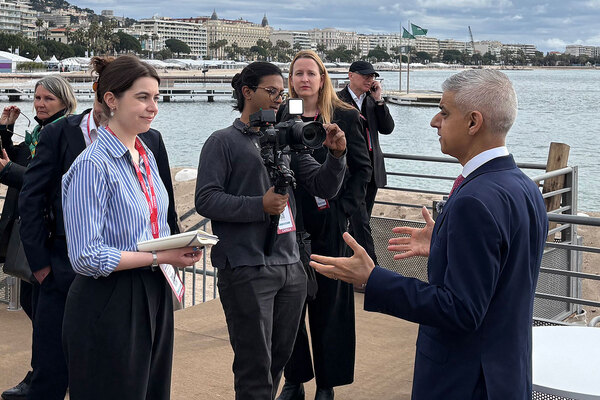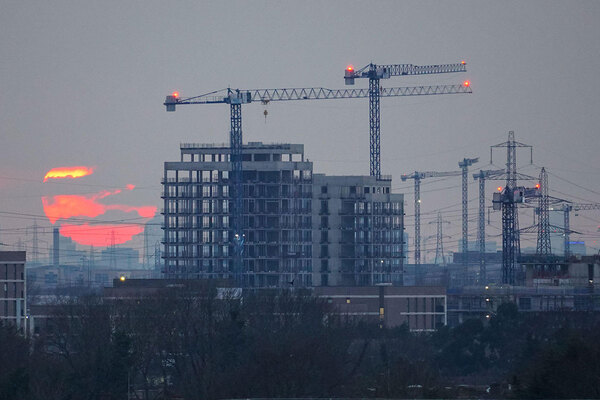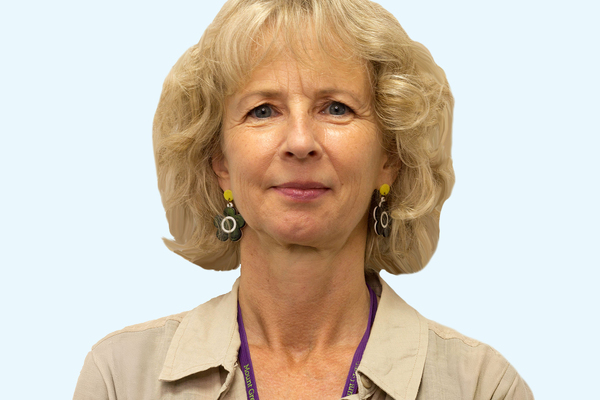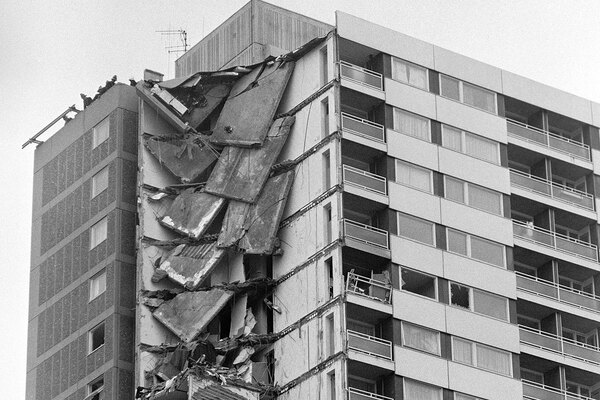A little bit of history repeating
Twelve months ago MP David Lammy saw his Tottenham constituency devastated by riots. Here, he tells Lydia Stockdale why he believes it could happen again
On 7 August last year, the morning after rioting hit his Tottenham constituency, David Lammy appeared on the television news condemning the actions of those involved as ‘mindless’. A Labour MP since the age of 27, Mr Lammy has been tipped by some to become Britain’s first black prime minister. And on that Sunday morning, speaking from amidst a weary-looking crowd, yards away from the wreckage of a still-smouldering police car, he appeared calm and reassuringly statesmanlike. But he was not a detached bystander - you could detect the anger bubbling beneath the surface.
Born in Tottenham almost exactly 40 years ago, Mr Lammy witnessed the devastation left behind by the riots which swept through his area of north London in 1985. From experience, he knew that, for people in his constituency, the stigma would linger long after the debris had been cleared.
In the 1980s the riots in Tottenham were part of a wider pattern of unrest, with outbreaks of violence also taking place in Brixton, south London, and Handsworth in Birmingham. This time around, the rioting began in Tottenham, provoked by the fatal police shooting of local man Mark Duggan. The unrest spread throughout towns and cities across England, lasting a further three nights, leaving five people dead and between £200 million and £300 million of damage in the capital alone.
Nearly a year on, Inside Housing meets the Tottenham MP in a serene meeting room in Westminster to find out whether he believes enough has been done to address the underlying causes of the disorder. His answer, quite simply, is no.
‘The problems haven’t gone away; they still remain very deep and very present in British society,’ says the formal and rather stiff-looking Mr Lammy, gravely reflecting on the past 12 months.
A government-commissioned report, published in November by the independent Riots, Communities and Victims Panel, concluded that riots will happen again if urgent action is not taken. This view is shared by Mr Lammy who also believes there could be more disturbances. ‘My judgement is that given what is happening in the eurozone we will be in for a decade of unrest,’ he says.
For Mr Lammy, the grim scenes he remembers from his youth are now being re-played in his Tottenham constituency, which sits within the London borough of Haringey. ‘The recessions of the early ’80s and mid ’90s led to a phenomenon of loads of young men roaming the streets with nothing to do - that is not something I’m hoping won’t happen [again], it’s something that is happening,’ he warns. ‘We run the risk of sliding back to the broken glass syndrome, where there’s graffiti and decay around that drives crime.’
The challenge for Inside Housing’s readers, he says, is to try to stop the decline. ‘We need to try to not repeat the mistakes of the 1980s where we see our housing estates fall back into disrepair, parks full of hypodermic needles and drug addicts and prostitution and the sorts of decay that we’d begun to really get rid of I think up until 2008/2009.’
Disenfranchised Britain
This last statement is not a reflection of Mr Lammy’s party politics. In fact, before his own party lost power in May 2010, the then minister of state for higher education and intellectual property began working on a book in his spare time - it was a personal thesis examining how successive governments, both Labour and Conservative, had left people at the bottom of society without a stake in it.
‘In it I discuss a range of issues that are to do with modern Britain. They’re to do with two revolutions that we had in the 20th Century, the first being the social liberal revolution that led to a fairer, more tolerant society, but a society in which people are very conscious about their rights and not their responsibilities,’ he explains.
‘The second was an economic liberal revolution that has led to a second double-dip recession, chronic housing problems and a serious problem with worklessness and a workless poor.’
When the riots happened it was as though all of the deep-rooted problems the MP had been trying to communicate came to a head, and when the book was eventually published in November 2011, it was called, Out of the Ashes.
As someone who has personal experience of living in an area affected by riots as well as an insider’s knowledge of government, Mr Lammy - who qualified as a barrister before entering politics - is uniquely placed to provide insight into the reasons why unrest broke out last summer.
When the 1985 riots started on the Broadwater Farm estate, just down the road from his family home, Mr Lammy was boarding at King’s Cathedral School in Peterborough, having won a scholarship to become a chorister. At the age of 13 he found himself explaining the context of the disturbances to his classmates.
Twenty-six years later, he was once again the person his peers, including deputy prime minister Nick Clegg, turned to in order to make sense of what had happened.
Complex causes
‘Mr Lammy engaged immediately and was accessible,’ says Bill Payne, former chief executive of Metropolitan, who met the MP shortly after 22 of the housing association’s shared ownership properties in Tottenham were destroyed by arsonists during the riots. ‘He offered a perspective which combined what was happening in a national political context with the detail on local issues.’
But although Mr Lammy has a greater understanding than most, he doesn’t have any easy answers. ‘The issues that underlie the riots that we saw across England are profound, and they can’t easily be swept under a carpet, they need profound and radical change,’ he sums up.

David Lammy surveys the damage after rioting in Tottenham last August
‘There’s always a spark that precipitates a riot. Of course there were some people who were reacting to the death of Mark Duggan, but on that first night there was widespread looting of Tottenham Retail Park and Wood Green Shopping City - it’s hard to argue that was in response to the death,’ he says. ‘As you would expect, on that first night there was a mixture of criminality, opportunity and protest, all rolled into one. It wasn’t one thing, it wasn’t one story.
‘The issues around Mark Duggan’s death continue and that is a source of great concern,’ he elaborates. The police watchdog the Independent Police Complaints Commission’s inquiry into Mr Duggan’s death is not expected to be completed until the autumn. ‘But I think the underlying issues are really to do with regeneration and some prospect for the future.’
The MP says he is ‘concerned with the narrative that young people didn’t have a voice before the riots’. ‘There was as much going on in Tottenham before for those young people as there is afterwards,’ he says.
In Mr Lammy’s constituency, for example, Haringey Young Advisors - a group set up to give young people the opportunity to influence their community and headed up by arm’s-length management organisation Homes for Haringey - was already well established by the time the disturbances broke out. In fact, one seasoned young advisor, Derekston James, was on the Riot Report Sounding Board, a panel of experts established by Inside Housing, the Chartered Institute of Housing and the National Housing Federation to contribute to their joint Riot Report, which was published in January.
‘There are issues around cuts to youth services,’ continues Mr Lammy, ‘but it is too easy to caricature these things as, “we must do something for young people because we’ve had riots,” when in fact the vast majority of young people in Tottenham were not caught up in the riots.’
Between 13,000 and 15,000 people were involved in the disturbances across England, and by November last year more than 4,000 suspected rioters had been arrested. Three quarters of those brought before courts were aged 24 or under. Yet it’s not the teenagers, who are still in school and college, that Mr Lammy is most worried about - ‘it’s 20-somethings who are not in education, employment or training’.
‘Unemployment is an urgent, major national priority,’ he says.
According to the Office for National Statistics, the unemployment rate in Tottenham stands at 8.2 per cent - the highest rate in London. ‘The number of young graduates in Tottenham has grown hugely since the last recessions, but they are struggling to get employment,’ he says.
Tackling worklessness
Mr Lammy believes the coalition’s work programme - the payment-for-results welfare-to-work programme that launched throughout Great Britain in June 2011 - isn’t delivering the results needed to prevent the social decline experienced across the nation during previous economic crises.
‘It is just not addressing these issues, partly because there is no work, and the youth contract [the £1 billion programme which began in April] has barely kicked in,’ he states.
The MP feels the coalition should never have scrapped the previous government’s £1 billion future jobs fund. ‘It was subsidising the public sector and the voluntary sector to employ these young people, and I think that is preferable to them being on the dole,’ he says.
At a local level Mr Lammy believes there is much that councils - such as Haringey which is running a £2 million apprenticeship scheme - and social landlords can do.
‘Housing associations and ALMOs can play a really important role in helping with that social glue,’ he says. ‘This is a time to be offering apprenticeships; it’s a time to be in serious partnership across organisations so you can make a bigger impact.’
‘My own constituency has been scarred by what has happened,’ says the MP, summarising the ongoing legacy of last August’s events. ‘But there’s a sense coming together and a determination to be positive and not to allow stigma to attach to the name of Tottenham. This is a time to not let things fall into disrepair and that sense of bleakness.’
One year on: what members of our sounding board think

Derekston James, a Haringey Young Advisor
‘On the whole I don’t think anything has changed. The protest in Tottenham occurred because Mark Duggan’s family wanted answers about his death. They still haven’t had any. That shows the family and Tottenham aren’t a top priority for government. I’ve just finished my first year of my degree at the University of Bedfordshire, and recently drove through Tottenham. It feels worse, gloomy and run down.’

Julie Fawcett, director of Stockwell Park Community Trust
‘The riots kicked off over a man killed by the police. He was deemed a criminal. A homeless, Millwall supporting alcoholic was also killed [during the G20 protests]. The distaste the general public has for the officer involved will be mitigated by the fact it was not their son on the receiving end of the baton or bullet. I know lots of sons who’ve been on the wrong end. What’s changed?’

Jo Burrill, regeneration project officer, Midland Heart
‘After the riots, there was much discussion of how to address the issues they highlighted. Midland Heart’s response - an apprenticeship programme called ‘Back on Track’, engages young people who have faced significant challenges. Four months in, it is fantastic to see them grow in confidence. What we have put in we will get out 10 times over.’








